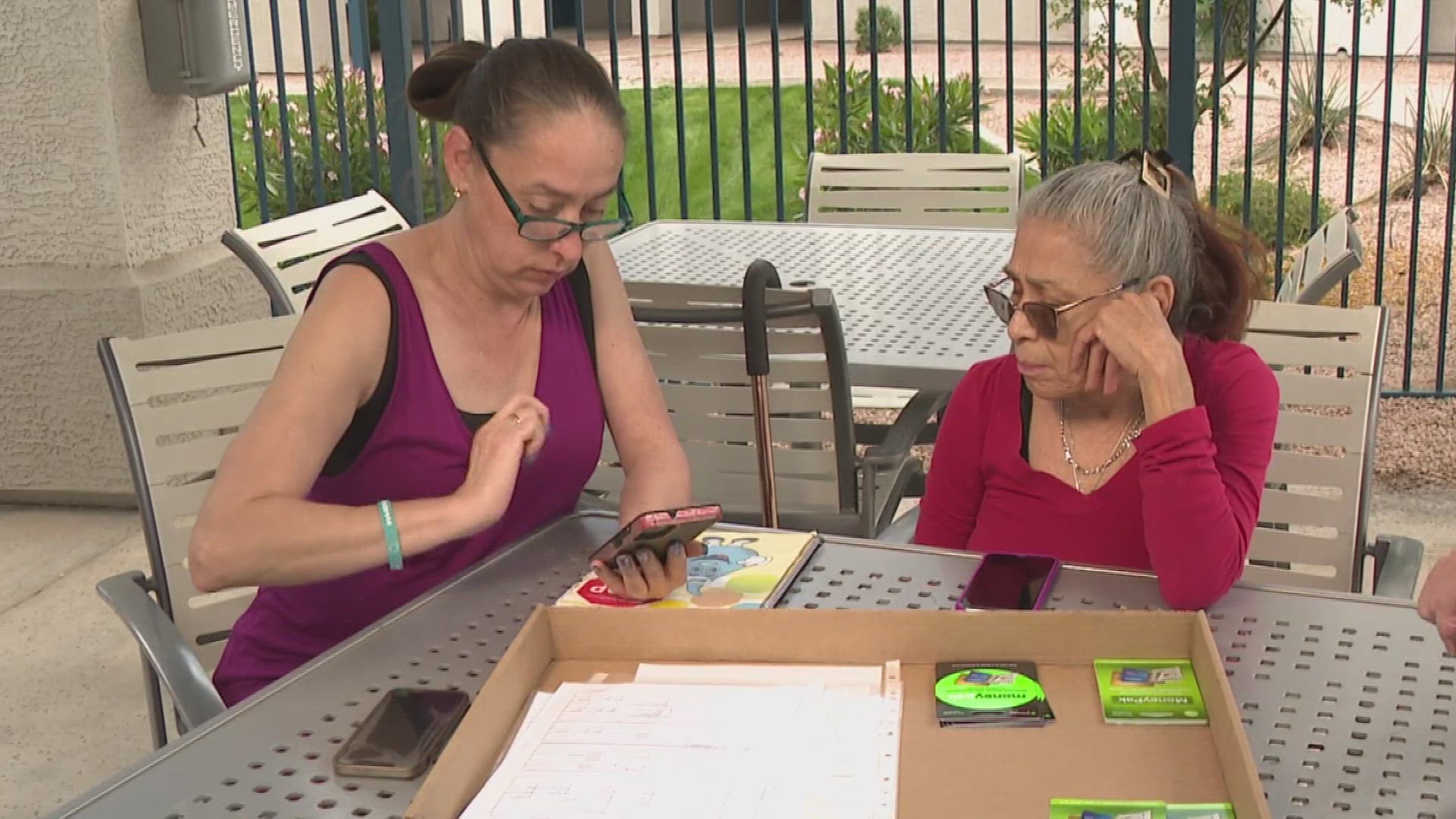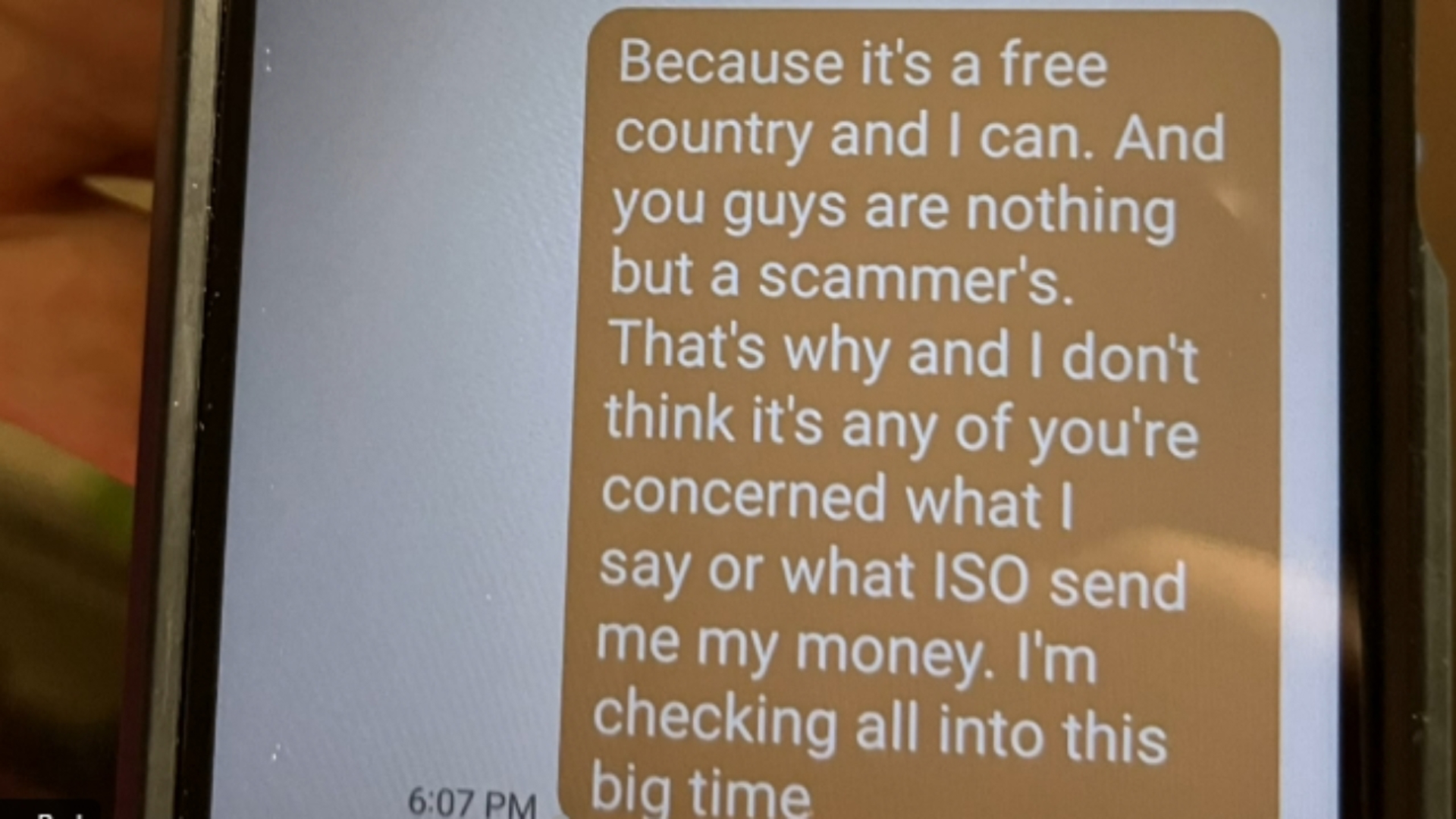MESA, Ariz. — Anna Martinez first entered the Publishers Clearing House sweepstakes thinking a prize of any size would help her family.
The 69-year-old Mesa resident knew it was a longshot. Still, when she got a call saying she was the winner of a $1.5 million prize, she believed it.
VERSIÓN EN ESPAÑOL: Una estafa le costó a una mujer miles de dólares y le explicamos que hacer para que no le suceda a usted
That was the first mistake. It would not be the last.
The Federal Trade Commission gets hundreds of complaints each week from people who get scammed by those claiming to be from Publishers Clearing House and other sweepstakes. The scams are often sophisticated with multiple people who play multiple parts. But there is a common thread: The people who fall for it end up poorer.
Usually much, much poorer.
When Martinez received the call, the man on the other end sent her a picture of the check she would be receiving.
He told her she only needed to pay the taxes.
“Number one, they had mentioned that it was the IRS,” Martinez said.
The blueprint of a common ‘impersonator’ scam
“They make up all these reasons. You know, you have to send IRS money. Now, there's a customs fee, there's a tax, there's a delivery shipping fee. None of that is legitimate,” said Chris Irving, the vice president of Consumer and Legal Affairs at Publishers Clearing House.
“We would never ask for any money to collect that prize. It's free,” Irving said. “If it's not free, it's not from Publishers Clearing House. It's not real, and it's a scam.”
Publishers Clearing House became famous for surprising people with big checks. They don’t call ahead. Not everyone knows that, or, in the excitement of the moment, not everyone remembers that.
“Publishers Clearing House will never do that,” said Elsie Kappler, staff attorney for the Federal Trade Commission, Bureau of Consumer Protection. “They will never be calling you trying to get you to give them money to claim a prize that you've won, that’s not how it works.”
All the while, countless hopeful “winners” believe what they’re hearing from con-artists over the phone.
“That's the problem, because the people who make these phone calls, send these letters, that's what they're doing every day, and they become pretty good at it,” Irving said.
The men who called Anna Martinez told her their names were Mr. Goodman, Mr. Zimmerman, Mr. Freeman and Mr. Johnson.
Each one had apparently different roles.
One claimed he was making several attempts to deliver the check to Martinez in person.
Another instructed her through the process of wiring money to accounts in New York and Tennessee.
Through a variety of convincing text messages, voicemails and phone calls – some becoming increasingly threatening – the men convinced Martinez to send four wire transfers in the month of February, totaling $24,400.
Then, they asked her to put money onto gift cards.
“She showed me her bank statement,” said Martinez’s friend, Jessica Wyse. “At the very top of the month, it said $23,000 and something. And then it said down at the end of the month, it said $1.06.”
By the time Martinez told her friends and family what was happening, she had emptied her account.
She finally realized the prize money was never going to come.
What you should do if you get a call or text like this
If you do get one of these phone calls or texts, hang up or don’t answer back. The FTC recommends:
- Don’t pay to receive prize or award money.
- If somebody's asking you for things like a birth date, a social security number, hang up. It's a scam.
- Gift cards are for gifts. Hang up if somebody's asking you for gift cards. It is absolutely a scam.
- Never wire money to someone you don’t know.
“My advice to anyone who has made a payment via wire or via gift card, get on the horn immediately to the wire transfer company, call the gift card company, give them the information. Sometimes that can be reversed,” the FTC’s Kappler said.
“The impersonator scams are pervasive,” he said. “They're rampant… and one other thing to keep in mind is that sometimes they don't want money, sometimes what they're trying to get is information… personal information that could compromise their identity, right? Make them victims of identity theft.”
Personal information is a valuable prize
“When we hear about these scams, one of the things we do ask is, ‘where did the criminals get this information?’” said Irving, with Publisher’s Clearing House. “Very often, they go out from other sites that sell lists, lists of consumers that may have sent money to someone else. That's where they get it from.”
In entering a giveaways,or sweepstakes contest, contestants give some personal information to enter. This can include basic information like your name, phone number, email, address, and sometimes biographic information like income and age.
“If you go online right now, and you search “sweepstakes files,” you'll find out that there are third parties that are selling information about consumers that have sent money to find out about sweepstakes,” Irving said.
Some of the information is necessary for the company to contact winners. It may also be a way for the company to earn money, selling user data to advertisers, for example.
In the wrong hands, this data can fuel scammers and help them identify targets.
Publisher’s Clearing House was the subject of an FTC complaint that resulted in a judgment last year. The FTC said, among other allegations, that the sweepstakes “misrepresented its policies on selling users’ personal data to third parties prior to January 2019.”
Irving said the company is protective of its customer information and data.
“When we sell data, we only share data with companies and individuals that we know,” Irving said. “In order to send data to somebody, we get to know who they are, what the purpose for it is, are they legitimate? Do they have a Better Business Bureau rating?”
“We would never share data with someone that's suspect or that we don't know or doesn't have a good reputation,” Irving added. “That would be a real violation, something we would never do.”
Would-be-scammers can get consumer data from a variety of sources, including buying it in bulk online. As long as customer data is so easily accessible to potential criminals, the burden remains on the victim to protect their own money.
“We can't respond to each and every complaint, because truly, we receive 1000s and 1000s and 1000s of complaints,” said Kappler with the FTC. “What we do is use those complaints to spot trends, to identify bad actors, to identify new kinds of scams, and then we use that to build our cases.”
No one returned 12News' calls
Martinez reported the scam to the Mesa Police Department, the FTC and the FBI through the online portal at ic3.gov.
According to the Mesa Police report, Martinez was unsure exactly what she lost when she filed and didn’t have all the numbers and bank information she had when interviewing with 12News.
Mesa police closed the case, but a spokesperson said it could be reopened with additional information.
It remains unclear whether the FTC or FBI will open a case, or whether Martinez’s documentation will contribute to any investigations they have ongoing.
12News attempted to reach all the men, at each number, that contacted Martinez, including those that accepted the wire transfers.
Not all the numbers were working, and none returned our calls.
If you have a tip on this or any other story, contact us at connect@12news.com


